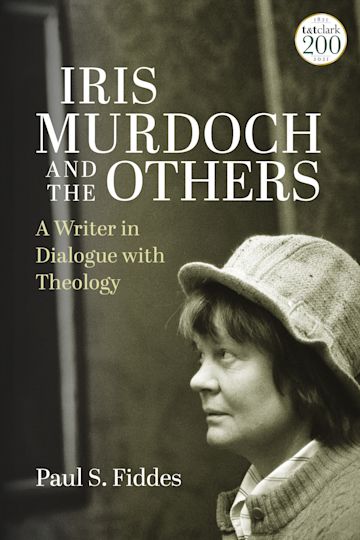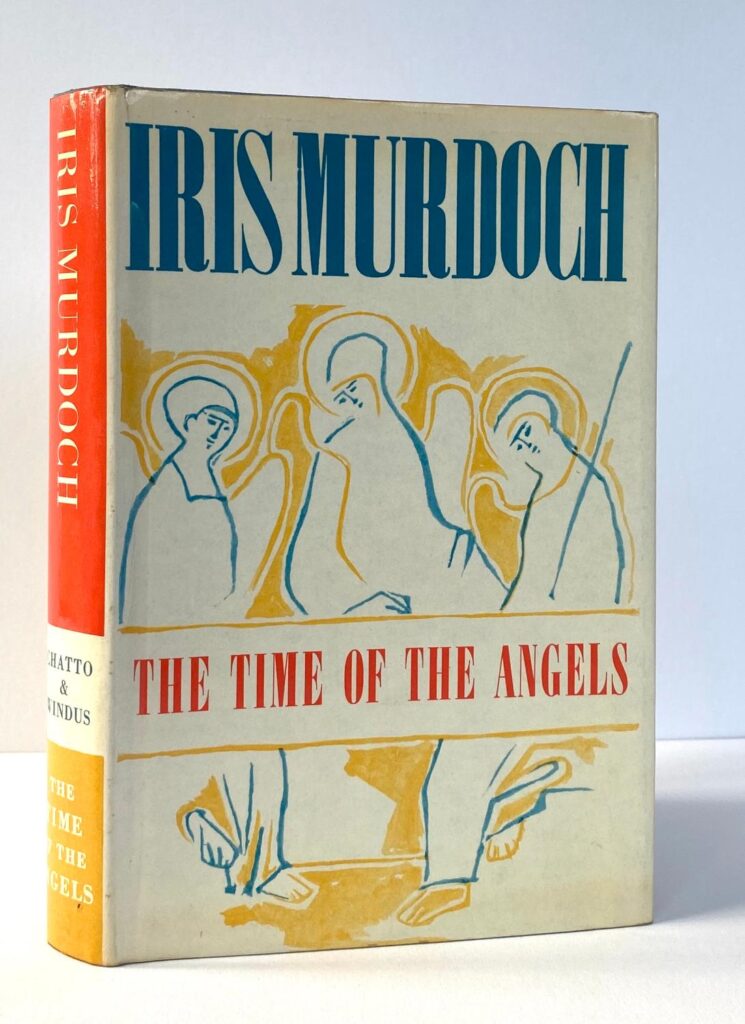Iris Murdoch’s engagement with theology
Eric O. SpringstedBOOK REVIEW — Paul S. Fiddes, Iris Murdoch and the Others: A Writer in Dialogue with Theology (London: T&T Clark, 2022 / 220 pages)
Iris Murdoch (1919-1999) is well known as one of England’s most prominent novelists of the second half of the Twentieth century. A winner of the Man Booker prize, she wrote twenty-six novels between 1954 and 1995 when the onset of Alzheimer’s Disease ended her career. She is no less well known as a philosopher. Her output in that field was not quite as prolific, but it has made a deep and continuing mark.

Murdoch’s philosophical essays, which were mainly concentrated in a period from the 1950s to the early 1970s, broke in on the smug analytic orthodoxy that reigned in the philosophical circles of Oxford where she taught at the time. She decried that take on philosophy, especially in ethics, as “existentialist, behavioristic, and utilitarian.” In its place, she shockingly proposed resurrecting a Platonic metaphysics of the Good, animated and complicated by love and desire, and that had at its heart a concern for the messy particulars of the world, an elimination of “the big, fat ego,” and dedicating oneself to paying attention to others. This philosophy was on display in several essays on aesthetics, trying to make the beautiful as the close kin of the Good again a moral category.
If those essays, particularly the ones first collected in The Sovereignty of the Good shocked analytic philosophy, they were heartily welcomed by many philosophers sympathetic to religion, and by numerous theologians. Murdoch created breathing room for them, but not only that, she also provided inspiration, and a lot of challenges as well, challenges that often came from within theology itself. She continues to be an important voice.

Philosophical provocations
In this fine scholarly, and yet readable, volume, Oxford theologian and philosopher of religion, Paul Fiddes, has set himself to examine Murdoch’s relation to theology by paying close attention not only to her relevant philosophical works but also by giving his reader some fine and close readings of several of Murdoch’s novels. Murdoch, he reminds his reader more than once, claimed she did not write “philosophical novels.” If that meant that she did not try to write novels that were veiled arguments for her philosophical position, or that promoted an argument, she, indeed, did not. But her characters are full of ideas, and they find themselves in positions in good part because of who they are that provoke philosophical thinking.
In the first two chapters of the book, Fiddes lays out Murdoch’s chief and most characteristic ideas, noting what was a genuine dialogue with theology. Most obviously, she owed a great debt to Simone Weil. From her came a commitment to a transcendent good, the notion of attention, a concern for Truth, and a concern with the false but imperious consolations of the imagination as people try to be — or assume that they are – good.

Murdoch’s reading in the early years of her thinking, however, was not confined to Weil. Since her library now resides at Kingston University’s School of Art, it is possible to know what she read, and what from her marginal notes, she thought about what she read. Fiddes has mined that source carefully. There was a period of time, of perhaps twenty years, when she did read theology deeply. Included in that reading were Bonhoeffer, Tillich, Bultmann, Barth, Buber, John A.T. Robinson, and Donald MacKinnon, among others. The upshot of this reading comes in the distinctive Murdochian positions; it helps to account for their particular lines. She was committed to a transcendent Good that is perfect and unitary, although at one time, e.g. in The Time of the Angels (1968) she seemed to think that the Good is scattered. Yet, God is not a person for her; following Rudolf Bultmann, she thought the notion of “God” ought to be thoroughly demythologized. Like Dietrich Bonhoeffer, she thought the modern world come of age needs to do without religion, although what she and he meant by that can be quite different. A powerful, intervening God she had put aside. Christ is valuable, not so much because of his suffering, or as a savior, but as one, in a sort of mystical sense, who can evoke communion with the Good, and who can be a focus of meditation, and as an example of human affliction.
In chapters 3-5, Fiddes then puts Murdoch in dialogue with John Manley Hopkins, Julia Kristeva, and Jacques Derrida. It is not likely that she read them, except perhaps Hopkins; in any case, she did not comment on them. By treating these thinkers, Fiddes’ point is to tease out Murdoch’s reflections and uses of the notion of the sublime, and her concern for particulars, the limits of language, as well as the ideas of contingency and attention to others.
Murdoch & Weil
The final chapter is the longest and the most important as it is dedicated to Murdoch’s relation to Simone Weil. Murdoch seems to have first started reading Weil in the early 1950s. She gave a BBC Radio program on her on October 18, 1951. Fiddes works to show not only what Murdoch got from Weil – some of that is quite obvious, such as a Platonic notion of the Good, the idea of attention, and the problem of imagination, but also what she did with Weil’s inspirations in her novels. Thus he gives his reader some fine and close readings of several of Murdoch’s novels.
We also get a discussion of some of the places where Murdoch diverged from Weil. Again, some of them are obvious – Weil may well have been committed to a Platonic Good, but she also took talk of “God” seriously. Similarly, Christ’s suffering for Weil was not merely symbolic, nor was he just an example of affliction. His cross, for Weil, was something that the afflicted participated in and through that in God’s eternal love. Facing the void for Weil was not facing death as such as it tended to be for Murdoch. Murdoch showed concern over Weil’s impersonalism, as she saw that it could undermine the particularity of the human person, although she came to recognize the importance of decreation. Murdoch also was suspicious of Weil’s rejection, at least in her pre-Need for Roots writings, of social institutions.
Murdoch’s engagement with theology

Fiddes’ treatment of Murdoch’s engagement with theology is important and profound. For Murdoch’s readers, whether of her novels or of her philosophy, he moves them to a much deeper level of understanding than has been possible before. He also shows what sort of challenge Murdoch issued to theologians who saw her as a sort of fellow traveler. Murdoch was not a standard sort of believer; she was suspicious of many parts of traditional Christianity and had put them aside. But that is a challenge to theology; if Christ is not just an example or symbol, what does it mean to say that Christ is really there? And positively, by showing this dialogue, Fiddes notes “that theology can alert us to the way that Murdoch’s attention to the Good is always diffused through the many signs of the Good that the particularities of the world represent, among which is the Christ.” (204). But if theology can help us to see that, Murdoch can also help theology see that diffusion as an important theological task.
This book will be an essential tool for any scholar working on Murdoch, whether it is her novels or philosophical work. It will also be helpful to Weil scholars for knowing what one of Weil’s most important readers did with her thoughts.
Related
- “The Human Person according to Iris Murdoch, Philosopher and Novelist: Paul Fiddes & Mircea Dumitru” (YouTube, June 10, 2021).
Eric Springsted is on Attention’s Advisory Board and author of Simone Weil for the Twenty-First Century (2021).
4 Recommendations
